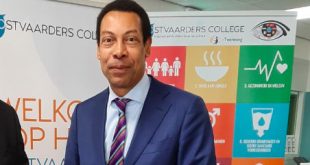
The Responsible Gambling Trust has called for operators to engage players with problem gambling guidance, offer self-exclusion mechanisms and ensure that staff are properly trained, in a review published today.
Forming part of the rolling Machines Research Programme, ‘Operator-Based Approaches to Harm Minimisation in Gambling’, the publication reviews the nature and effectiveness of harm minimisation and proposes areas of further study.
In particular, the report recommends:
- investigating the impact of various forms of in-game dynamic messaging on the key indicators of harm;
- exploring employee awareness and understanding of their responsibilities with regards to interacting with players who may be experiencing harm;
- exploring strategies to increase player awareness of responsible gambling measures available within the venue;
- a detailed consideration of the technical, operational and legal issues that will facilitate or constrain the range of solutions to the enforcement of self-exclusion;
- investigating industry and player perspectives on more innovative approaches to self-exclusion
- identification and trial of technology to facilitate the enforcement of self-exclusion; and
- exploring the impact of various types of advertising content and form (including social media) on intentions and attitudes toward gambling and responsible gambling.
It was written by Professor Alex Blaszczynski of the University of Sydney, with Dr. Adrian Parke (University of Lincoln), Dr. Jonathan Parke and Dr. Jane Rigbye (Responsible Gambling Trust).
Marc Etches, Chief Executive of the Responsible Gambling Trust, said: “In order to design and implement measures which minimise harm to problem gamblers we first need to understand what form that harm takes and how it can be feasibly tackled. The Responsible Gambling Trust’s programme of research is on course to report to Government in the autumn of 2014 but this report highlights the significant work that needs to be undertaken by operators and policy makers to prepare the ground so that gamblers get more effective support from staff, through machines and elsewhere to minimise gambling harm.”
Professor Alex Blaszczynski added: “A particular harm minimisation approach may be theoretically appealing, however if it is unworkable from a legal, operational or regulatory perspective, it becomes less relevant. Despite the numerous drivers for more prescriptive, up-to-date guidelines for minimising gambling-related harm, there exists a dearth of reliable evidence. The basic position must be one of careful and strategic consideration of effective options.”









